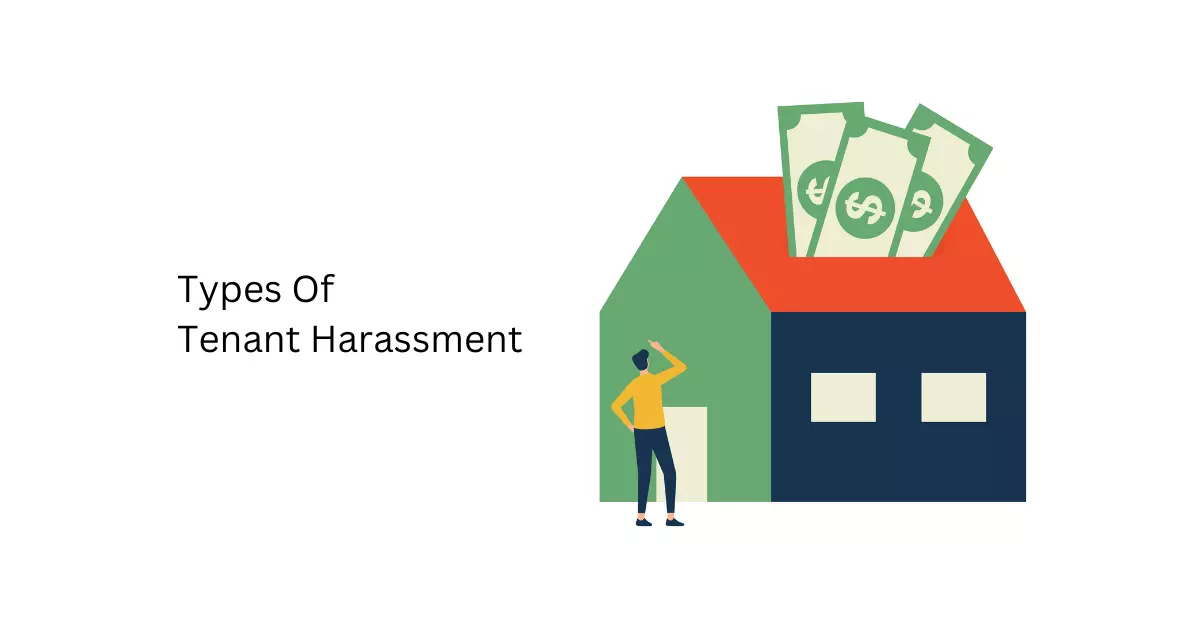What Can I Do If Another Tenant is Harassing Me California?
If another tenant is harassing you in California, you can file a complaint with your landlord or property management company and request their intervention. Additionally, you can file a police report or seek a restraining order from a court.
If you are facing harassment from another tenant, there are steps you can take to ensure your safety and protect your rights.
In this article, we will explore what you can do if another tenant is harassing you in California.

Understanding Tenant Harassment In California
If you’re experiencing harassment from another tenant, it’s crucial to know your rights as a tenant in California.
To begin with, it’s essential to understand what tenant harassment means and what kinds of harassment you may encounter. Here’s what you need to know:
Definition Of Tenant Harassment
- Tenant harassment refers to intentional actions taken by a landlord or other tenants that severely disrupt or interfere with a tenant’s peace and comfort.
- This conduct may include physical violence, threats, intimidation, or interference with essential services.
Types Of Tenant Harassment
- Verbal harassment: Consists of verbal attacks, insults, and other derogatory remarks that create an atmosphere of fear and intimidation for tenants.
- Physical harassment: Any conduct that has the explicit goal of creating fear, hostility, or injury to another person.
- Sexual harassment: Any conduct or unwelcome advances of a sexual nature that make the tenant feel uncomfortable while living on the property.
- Retaliatory harassment: Any harassment that is committed by a landlord or other tenant to punish a tenant for exercising their rights under the law.

Common Examples Of Tenant Harassment
- Sending threatening notes or making threatening phone calls.
- Entering a tenant’s apartment without permission.
- Removing a tenant’s belongings from the property without notice.
- Repeatedly showing up unannounced at a tenant’s door or window, or engaging in stalking behavior.
- Refusing to make necessary repairs, interfering with necessary services or utilities, or creating excessive noise intentionally.
What The California Law Says About Tenant Harassment
The California law aims to protect tenants against tenant harassment.
- The law allows tenants to take legal action against their landlord or other tenants who engage in harassment.
- The law prohibits this type of behavior and makes it illegal under California law.
- If you are a tenant and feel your safety and well-being are threatened by another tenant’s actions, you can and should take legal action and protect your rights.
Taking Action Against Tenant Harassment
Being harassed by a fellow tenant can be a challenging and overwhelming experience.
It is essential to know your rights and take action against any harassment you face. Here are the steps to take when a tenant is harassed.
Steps To Take When A Tenant Is Harassed
Immediate Actions To Take
- Inform the landlord or property manager immediately to take appropriate action.
- Gather evidence, such as emails, text messages, or photos of any harassment.
- Notify law enforcement if your safety is at risk.
Documentation To Gather
- Keep a detailed record of all incidents of harassment, including dates, times, and what occurred.
- Collect any supporting documents, such as emails, texts, or notes.
Filing A Harassment Complaint In California
Who To File The Complaint With
- File a complaint with the California department of fair employment and Housing (dfeh) or the local fair housing agency.
- File a complaint with the police if any physical violence or property damage is involved.
Filing Process And Requirements
- Fill out the appropriate tenant harassment form and provide all necessary documentation.
- The dfeh or fair housing agency will conduct an investigation to determine whether there is evidence of harassment.
- The agency will either dismiss the complaint or notify you and the harasser of a right to sue.
Options Available When Filing A Complaint

Temporary Restraining Orders
- Get a temporary restraining order from the court to protect you from further harassment.
- The order requires the harasser to stay away from you and prohibits any contact.
Mediation
- Mediation is an opportunity to resolve disputes between you and the harasser without going to court.
- An impartial mediator facilitates discussions and negotiations to reach a mutually acceptable solution.
Pursuing Legal Action
- Filing a lawsuit against the harasser is an option if other remedies are unsuccessful.
- Consult with a lawyer to determine whether you have a valid claim and what options are available to you.
FAQs
What Is Considered Tenant Harassment In California?
Tenant harassment most commonly refers to a landlord causing intentional interference, intimidation, or discrimination against a tenant.
How Can I Prove Tenant Harassment In Court?
Evidence of tenant harassment may come in the form of eyewitness accounts, photographs, phone recordings, or written documentation.
What Can I Do If My Landlord Is Harassing Me?
As a tenant who is being harassed by a landlord, you can seek legal remedies, such as seeking an injunction or filing a lawsuit.
How Can I Protect Myself From Tenant Harassment?
Tenants can take steps to protect themselves from harassment, such as documenting all interactions with their landlord and notifying the authorities.
Conclusion
Taking a stand against harassment is empowering. You have tools at your fingertips. California law protects your right to live without fear.
Utilize your landlord, restraining orders, and legal support, turning your living environment into a haven again. Remember, you’re never alone in this fight.
my next door neighbor in my building has been obsessed with me and has been harassing me and my I.h.h.s worker. each and every event has been reported to management company. I have ring camera footage. she has called the police multiple times falsely accusing me of playing loud music and falsely accusing me of threatening to kill her with a gun. lied to apt. manager about me I have drugs in my apartment and all kinds of crazy stuff. police advised me to file a restraining order. I did did that and we went through mediation. so stay away agreement was set in place. she violated this and I filed restraining order like the court advised. Judge denied the restraining order because we are neighbors and property management issue. of course I’ve known this all along but property management just gives the neighbor warnings and she does what she wants. I have been told for 6 months it is getting taken care of. so I feel like at this point I need to file a suit. I barely see this neighbor and don’t talk to her. she has gone to all our neighbors and told them I hacked her phone and all kinds of stuff. today I am feeling afraid of her because of the fact that she is so mentally obsessed with me on a daily basis. so I have done everything property management and the law has told me to do and she has gotten away with taking away my peace.